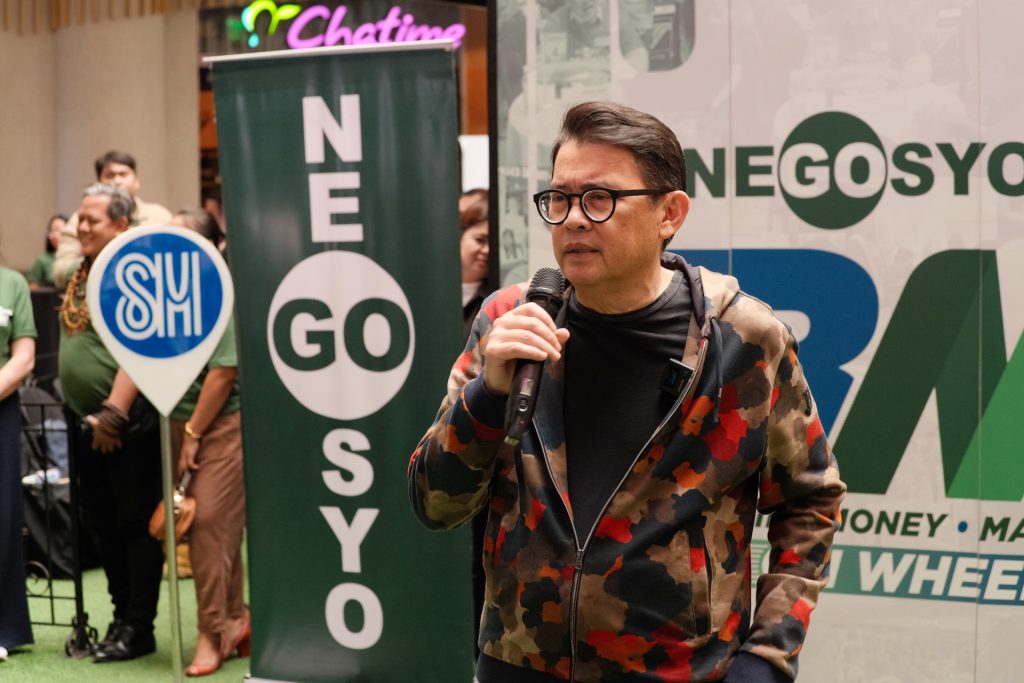
Go Negosyo Goes to San Pedro Laguna
February 8, 2025
A Mentor to a Nation’s Palate
February 17, 2025
Putting Small Enterprises on Every Candidate’s Agenda
I have been asked several times before how come I don’t run for office. Go Negosyo, they tell me, is a nationwide platform; it wields tremendous potential to reach out to Filipinos. I can see why people would be tempted to read more into my work at Go Negosyo beyond our mission to advocate for entrepreneurship in the Philippines. People can be easily forgiven for thinking this is a platform for elected office.
It was never about politics. I have said this time and again. Not that I mind being asked if I will ever run for office. It’s a good jump-off point for talking about public-private sector cooperation, of which I would gladly talk about for hours.
I admire my private-sector peers who chose to serve in government. It is a brave thing that they’re doing and I wish them all the best. Government and private sector can learn a lot from each other and I am glad for the private sector input in government and government help in private sector efforts. There’s no reason the two shouldn’t co-exist.
There’s a notable enthusiasm among some emerging and hopeful leaders, even among those I haven’t met yet, who are putting entrepreneurship on their agenda. There are, however, candidates in this year’s midterm elections, such as senatorial aspirants Bam Aquino and Ben Tulfo, as well as George Royeca from Angkasangga Partylist, who actively reached out to me for guidance on supporting MSMEs. This engagement inspires optimism, showing that there are candidates who are actively seeking to understand the challenges faced by this crucial part of our economy.
Bam, of course, has been a long-time ally of the MSMEs. He authored and was the principal sponsor of the Go Negosyo Act (RA 10644), his first law in the 16th Congress, principal sponsor of the Universal Access to Quality Tertiary Education Act (RA10931) and co-author and principal sponsor of the Youth Entrepreneurship Act (RA 10679).
George, meanwhile, has first-hand experience in nanopreneurship courtesy of the motorcycle riding app Angkas, which he co-founded and led for many years. As such, he vows to fight for the rights and benefits of the informal sector by making them negosyantes or nanopreneurs. He is also a frequent speaker and volunteer mentor at our public entrepreneurship events.
Micro and small entrepreneurs (MSEs) need a voice in the national platform. Policy, especially, is important if there are to be far-reaching improvements that can help them. Over the nearly 20 years that I’ve worked with these survival entrepreneurs, there are always stories of how they find it hard to do business amid situations beyond their control, from rising materials costs, unfair competition from smuggled goods, the cost of power, availability of infrastructure… you would be surprised at how much these struggling businessmen need to overcome just to keep their enterprises afloat.
That’s why I encourage as many of my peers in the private sector and government to come and meet and mentor these grassroots entrepreneurs; there is a lot to be gleaned from their stories. With election season upon us, we should encourage our elected officials to put entrepreneurship – specifically, the MSEs – on their agenda.
MSMEs (medium enterprises, especially) are beginning to gain more credit for their role in developing a nation’s economy. Just look at our neighbors in the ASEAN. A strong base of healthy MSMEs makes for a healthy national economy; as the micro become small, the small becomes medium and the medium becomes large, we encourage a healthy, ever-flowing stream of businesses that support the economy. It’s like having a house built on several strong foundations, with those foundations being regularly maintained and refreshed.
And it’s not only the national officials but also the local officials who can do so much to help MSEs. Our provincial roadshows and school programs work because of the cooperation of local governments. The First Lady’s LAB for All initiative, for example, opened so many doors for our free mentoring activity because of the heavyweight support it can muster with local governments. Imagine if the entrepreneurship-focused efforts were to be institutionalized on the local level, with every barangay captain, town councilor, kagawad, mayor or congressman having MSEs on their agenda.
Growing MSEs is a good idea for local officials. They produce both negosyo (livelihood) and trabaho (jobs) – two critical elements that can contribute to the prosperity and happiness of their constituencies. Helping people have jobs and livelihoods is an inclusive and sustainable way of bringing financial health to the community, not to mention a long-lasting legacy project that has real, meaningful impact on the daily lives of people.
The small entrepreneurs I meet always remember who helped them get their businesses started and helped them overcome difficult situations. It’s the kind of “utang na loob” that is never forgotten or surpassed by any doleout: they were able to build a house, send the children to school, realize their dreams, simply because someone made it possible for them to do so. People don’t forget things like that.
Originally Published in Philippine Star

2/F RFM Corporate Center, Pioneer cor. Sheridan Sts. Mandaluyong City, Metro Manila, Philippines

